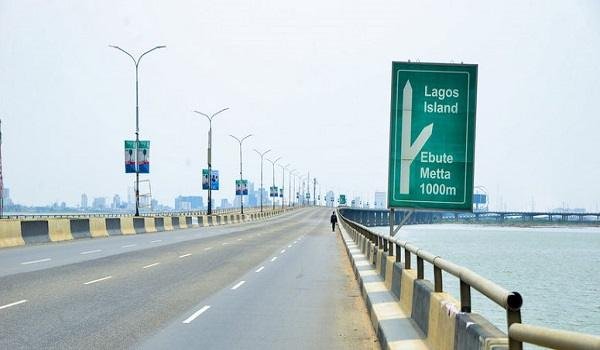There has been widespread criticism across Nigeria as the Federal Government unveiled plans to allocate over N3 trillion for the repair or reconstruction of the Third Mainland Bridge, one of Africa’s longest bridges and a vital artery for Lagos commuters. The announcement, made by Minister of Works David Umahi, has drawn sharp rebukes from citizens who decry the exorbitant cost as inflated and disproportionate, especially when compared to the nation’s fiscal priorities.
The Third Mainland Bridge, spanning 11.8 kilometers and connecting Lagos Island to the mainland, has long been plagued by structural issues stemming from decades of neglect, underwater erosion, illegal sand mining, and corrosion. Minister Umahi revealed during a recent Federal Executive Council (FEC) meeting that rehabilitation efforts could cost up to N3.8 trillion, while constructing a new bridge might require slightly less at N3.6 trillion. He emphasized the urgency of the project, warning that further delays could escalate expenses even higher. “The underwater problems are compounded by decades of neglect and human activities that have undermined the bridge’s substructure,” Umahi stated. “We cannot delay. If we decide on rehabilitation, it will require huge resources and specialized engineering. If we opt for a new build, it is slightly less costly but still a massive undertaking.”
Government officials have justified the massive budget by highlighting the bridge’s critical state, describing it as “irreparable” due to severe damage to its underwater structures. To manage the financial burden, the administration is exploring Engineering, Procurement, Construction, and Financing (EPC+F) models, along with public-private partnerships (PPP). Umahi noted that seven specialist contractors have been approved to conduct detailed investigations and submit bids through a competitive process. “A stitch in time saves nine,” he added, underscoring the potential for cost overruns if action is postponed.
However, the proposal has been met with a torrent of public outrage, with many Nigerians questioning the transparency and realism of the figures. Social media and public forums are abuzz with comparisons to similar infrastructure projects in neighboring countries like Kenya, Ghana, and Ethiopia, where costs are reportedly far lower. Critics have pointed out that the N3.6 trillion price tag for the bridge exceeds Nigeria’s entire proposed 2025 education budget, fueling accusations of misplaced priorities amid economic hardships, rising inflation, and underfunded public services.
Read also:
- Nigeria’s CNG initiative attracts $980 Million Investment in just 18 months
- Nigerian twin brothers launch Zugu TV platform in U.S
- Nigeria to produce 400,000 tonnes of Sugar annually as NSDC signs new deals with 4 operators
Adding to the skepticism is the stark contrast with earlier estimates. Just months ago, in March 2025, the government announced a N21 billion rehabilitation plan for the same bridge, while the nearby Carter Bridge was slated for N25 billion in repairs. “How did we jump from billions to trillions overnight?” asked one Lagos resident on social media, echoing a common sentiment of distrust toward the contracting process. Advocacy groups and opposition figures have called for greater accountability, demanding audits and public consultations to ensure the funds are not siphoned through opaque deals. “We feel like we’re being ruled like conquered people, excluded from decisions that affect our lives and denied any real accountability,” one commentator lamented.
The Third Mainland Bridge, completed in 1990 under the Ibrahim Babangida administration, has undergone partial repairs in recent years, including a major closure in 2023-2024 that disrupted traffic for months. Despite these efforts, persistent issues have prompted the current escalation. As outrage builds, questions linger about whether public pressure will influence the Tinubu administration’s approach or if the project will proceed amid growing calls for fiscal prudence.
Government spokespersons have yet to respond to requests for further clarification on the cost breakdown, but Minister Umahi has assured that emergency works are under discussion to minimize disruptions. For now, the debate underscores broader concerns about infrastructure management in Nigeria, where grand projects often spark controversy over efficiency and equity.






